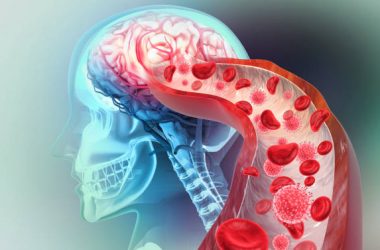Pamela Klonoff, PhD: Psychologist in Phoenix, Arizona
-
222 W Thomas Rd Suite 401, Phoenix, AZ 85013, United States
- https://www.barrowneuro.org/get-to-know-barrow/person/pamela-klonoff-phd/
-
+1 855-401-2403
-
9 am–5 pm - Saturday & Sunday: Closed
Overview
Pamela Klonoff, PhD: Leading Psychologist in Neuro-Rehabilitation in Phoenix, Arizona
Dr. Pamela Klonoff, PhD, is a highly regarded neuropsychologist based in Phoenix, Arizona. She serves as the director of the Center for Transitional Neuro-Rehabilitation (CTN) at Barrow Neurological Institute located at Dignity Health St. Joseph’s Hospital and Medical Center. Dr. Klonoff is known for her expertise in milieu-oriented neuro-rehabilitation, psychotherapy for patients and families, and cognitive retraining. Her approach combines holistic and evidence-based methods to treat individuals recovering from brain injuries and neurological disorders.
Professional Background and Credentials
Dr. Klonoff’s academic and professional journey reflects her extensive training and commitment to neuropsychology. She earned her PhD from the University of Victoria in British Columbia, Canada. After completing her doctorate, she gained further experience through an internship at Sunnybrook Medical Centre in Toronto, Ontario. Her post-doctoral training includes a fellowship in neuropsychology from Presbyterian Hospital in Oklahoma City, Oklahoma.
Dr. Klonoff is board-certified by the American Board of Professional Psychology (ABPP), ensuring her qualifications meet the highest standards in the field of psychology. In addition, she is an active member of the American Psychological Association and the National Academy of Neuropsychology, where she remains involved in the latest research and developments in neuropsychological practice.
Expertise in Milieu-Oriented Neuro-Rehabilitation
One of Dr. Klonoff’s key areas of expertise is milieu-oriented neuro-rehabilitation. This holistic approach is designed to support individuals recovering from brain injuries by creating a therapeutic environment where patients can interact with one another and healthcare professionals in structured, supportive settings.
Key Components of Milieu Therapy
- Community Engagement: Milieu therapy emphasizes the importance of a communal atmosphere where patients participate in group therapy and social interactions. The therapeutic setting fosters emotional healing, communication, and cognitive development.
- Structured Social Interactions: Patients are encouraged to engage with one another through therapeutic activities that promote problem-solving, emotional regulation, and interpersonal skills.
- Support Networks: Families, caregivers, and staff members play essential roles in this model, providing a strong support network that encourages long-term recovery.
Neuropsychological Services Provided by Dr. Pamela Klonoff
Dr. Klonoff provides a range of services that cater to patients experiencing cognitive, emotional, and psychological challenges following neurological injuries or disorders. Her practice focuses on evidence-based treatments tailored to each patient’s unique condition and goals for recovery.
1. Comprehensive Neuropsychological Assessments
Dr. Klonoff conducts thorough neuropsychological assessments to evaluate patients’ cognitive functioning. These assessments are critical in diagnosing cognitive impairments and identifying the areas of the brain affected by injury or illness.
- Cognitive Testing: Evaluates memory, attention, problem-solving, and executive function to understand the patient’s cognitive abilities.
- Emotional and Behavioral Assessments: Provides insight into the emotional challenges patients may face, including anxiety, depression, and adjustment difficulties.
2. Cognitive Retraining Programs
One of Dr. Klonoff’s specialties is cognitive retraining, a treatment designed to help patients recover cognitive functions lost due to neurological damage. This process involves tailored exercises and activities that stimulate different parts of the brain to enhance memory, focus, and reasoning skills.
- Memory Improvement: Techniques that help patients enhance short-term and long-term memory functions.
- Attention Training: Exercises that improve the ability to concentrate and sustain attention during daily activities.
- Problem-Solving Skills: Programs that help patients develop strategies to address everyday challenges, such as managing finances or performing job-related tasks.
3. Psychotherapy for Patients and Families
Dr. Klonoff provides psychotherapy not only to patients but also to their families and caregivers. Neuro-rehabilitation can be emotionally demanding, and psychotherapy helps both patients and their loved ones cope with the psychological stressors that arise during recovery.
- Individual Therapy: Offers personalized support for patients dealing with anxiety, depression, or other mental health issues related to their neurological condition.
- Family Counseling: Assists family members in understanding the challenges of neuro-rehabilitation and provides guidance on how to best support their loved one’s recovery process.
4. Return-to-Work and Return-to-Driving Programs
Dr. Klonoff’s research and clinical practice also emphasize the importance of returning to work, driving, and school as key milestones in rehabilitation. Her studies focus on the factors that contribute to successful transitions in these areas, and her programs are designed to help patients regain independence in their daily lives.
- Work Rehabilitation: Programs that help patients gradually resume work responsibilities, often with modified schedules or tasks suited to their cognitive abilities.
- Driving Assessments: Evaluates a patient’s readiness to return to driving and provides strategies for safely navigating the road after recovery.
Research Contributions
Dr. Klonoff is actively involved in research on neuro-rehabilitation, particularly focusing on the efficacy of milieu-oriented therapy. Her research investigates the factors that contribute to successful outcomes in patients, particularly in terms of returning to work, driving, and school. These studies inform her clinical practice and allow her to offer cutting-edge treatments based on the latest scientific findings.
Key Research Areas
- Factors Affecting Return to Driving: Dr. Klonoff’s research highlights the psychological and cognitive factors that determine a patient’s ability to safely resume driving after a brain injury.
- Vocational Rehabilitation: Studies the impact of neuro-rehabilitation on patients’ ability to return to their professional roles and regain financial independence.
- Long-Term Outcomes in Neuro-Rehabilitation: Investigates how different therapeutic approaches affect patients’ cognitive and emotional recovery over extended periods.
Insurance Plans Accepted
Dr. Klonoff’s office accepts a wide range of insurance plans to accommodate diverse patient needs. Accepted insurance providers include:
- Aetna
- AHCCCS (Referral Required)
- Blue Cross Blue Shield
- Blue Cross Blue Shield Third Party
- Cigna
- Commercial Networks
- Government Plans
- Humana
- Market Place Plans (Referral Required)
- Medicare Advantage Plans (Referral Required)
- United Healthcare
Patients are encouraged to verify their insurance coverage before scheduling appointments, especially if a referral is required by their plan. The office staff assists with insurance inquiries and clarifies any details regarding coverage and referrals.
Facilities at the Center for Transitional Neuro-Rehabilitation
The Center for Transitional Neuro-Rehabilitation (CTN) at Barrow Neurological Institute offers state-of-the-art facilities designed to support neuro-rehabilitation patients. The environment is optimized for both clinical care and therapeutic activities, ensuring patients receive comprehensive, holistic treatment.
Rehabilitation Spaces
- Cognitive Retraining Rooms: Equipped with tools and technology for individualized cognitive exercises aimed at improving memory, attention, and executive function.
- Group Therapy Rooms: Designed for milieu-oriented therapy sessions, where patients can engage in social interactions and group activities.
- Family Counseling Areas: Private spaces where patients and their families can participate in counseling sessions with Dr. Klonoff.
Access to Multidisciplinary Care
The CTN is part of Barrow Neurological Institute, which allows Dr. Klonoff to collaborate with a wide range of specialists, including neurologists, neurosurgeons, physical therapists, and occupational therapists. This multidisciplinary approach ensures that patients receive comprehensive care addressing all aspects of their recovery.
Contact Information
For patients seeking to schedule an appointment or inquire about services, Dr. Klonoff’s office can be reached using the following contact details:
- Address: 222 W Thomas Rd Suite 401, Phoenix, AZ 85013, United States
- Phone: +1 855-401-2403
- Office Hours: Monday through Friday, 9 am to 5 pm (Closed on weekends)
- Website: www.barrowneuro.org
How to Request an Appointment
To request an appointment with Dr. Klonoff, patients can call the office directly or fill out an inquiry form on the Barrow Neurological Institute’s website. Patients should be prepared to provide their insurance information and any relevant medical history.
Conclusion
Dr. Pamela Klonoff, PhD, stands as a leader in the field of neuropsychology and neuro-rehabilitation in Phoenix, Arizona. Her expertise in milieu-oriented therapy, cognitive retraining, and psychotherapy for patients and families makes her an invaluable resource for those recovering from brain injuries and neurological disorders. Her commitment to providing holistic, evidence-based care has helped countless patients regain cognitive functions, emotional well-being, and independence. Through her work at the Center for Transitional Neuro-Rehabilitation, Dr. Klonoff continues to make significant contributions to the field, helping patients achieve their rehabilitation goals and improve their quality of life.
Map
Related Listings
6535 W Camelback Rd Suite 4, Phoenix, AZ 85033, United States
+1 623-231-5535
Priti Patel, MD is located at 6535 W Camelback Rd Suite 4, Phoenix, AZ 85033, United States
350 Dickinson St Suite 3-325, San Diego, CA 92103, United States
+1 619-543-5221
Lama Muhammad, MD is located at 350 Dickinson St Suite 3-325, San Diego, CA 92103, United States
1920 Burnet St, San Antonio, TX 78202, United States
+1 210-227-3401
Adult Mental Health Services: Martinez Fernando MD is located at 1920 Burnet St, San Antonio, TX 78202, United States






Write a review